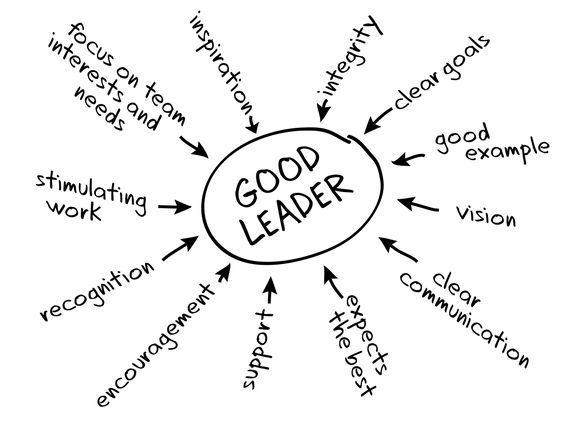Benel D. Lagua l November 1, 2024 l Business World

A new study by Ben Weidman of Harvard Kennedy School and his co-authors sought to identify the causal contribution of managers to team performance. The study was entitled “How do You Find a Good Manager?” The authors introduced a new experimental method that requires repeated random assignment of managers to multiple teams and careful controls for individual performance predictors. The premise is that good managers are expected to consistently cause their workers to exceed predicted performance.
Managers had several distinct roles in the experiment, delegation. monitoring and motivation. The first responsibility is deciding who did what. Managers were allowed to delegate in any way they saw fit provided everyone including the managers themselves had an allocation. Second, managers monitored progress throughout the task. Third, managers motivated their teams throughout the task and the reward structure excludes financial incentives.
The study makes the following conclusion, “Over multiple random assignments, some managers consistently cause their teams to exceed predicted performance. Good managers are roughly twice as valuable as good workers, consistent with studies of managerial performance in other settings. Good managers have higher fluid intelligence and score higher on a test of economic decision-making skill. There is no difference in average managerial performance by gender, age or ethnicity.”
“Self-promoted managers perform worse than managers who are randomly assigned to the role. This is likely due to overconfidence. Managers whose actual performance is worse than their self-reported performance have stronger preferences to be in charge. Self-promoted managers have higher reported social skills but do worse on a widely used skill-based test of emotional perceptiveness. Self-nomination is highly correlated with extraversion and self-reported people skills, especially among men. Finally, good managers increase group performance by monitoring workers to avoid wasting time, by allocating workers to tasks that maximize their comparative advantage, and by motivating them to exert effort.”
Finding a good manager is a crucial step in ensuring the success of any organization. Interestingly, the Weidman study cautions against self-promoting types. Attention to skills set rather than demographics or preferences for leadership could substantially increase organizational productivity.
Another study by Alan Benson, et.al. discussed “Promotions and the Peter Principle.” Evidence shows that many firms prioritize current job performance in promotion decisions at the expense of other observable characteristics that better predict managerial performance. This is the Peter Principle at work showing how individuals may be promoted to their “level of incompetence,” where they are no longer performing effectively.
Will an MBA help? Elon Musk was once quoted as saying MBA-trained leaders often focus too heavily on the financial side of the business, at the expense of understanding and improving the actual products and services a company provides.
An MBA equips individuals with theoretical knowledge, exposure to case studies, and analytical skills that can be beneficial in decision-making and problem solving. However, it does not inherently teach emotional intelligence, interpersonal skills, or the ability to motivate and manage people effectively. In many cases, experience is as valuable, if not more so, than formal education. Individuals who rise through the ranks within an organization often have a deep understanding of company culture, operational processes, and the specific challenges the team faces.
Successful managers are distinguished by a set of core skills that enable them to lead teams effectively, drive results, and foster a healthy workplace culture. Below are some are key skills demonstrated by good managers.
Emotional intelligence (EQ) tops the list. A manager’s ability to understand and manage their own emotions, as well as empathize with the emotions of others, is vital for building strong relationships and maintaining team morale. This is followed by communication skills. Clear, concise, and transparent communication is essential for effective management. Managers must be able to articulate expectations, provide constructive feedback, and listen actively to team members’ concerns and ideas.
Managers must be relied on for their decision-making ability. Effective managers can weigh the pros and cons, consult relevant stakeholders, and make informed decisions that align with the company’s goals. As in the Weidman study, delegation and empowerment must be judicious. Effective managers know how to delegate tasks based on team members’ strengths and empower them to take ownership of their work.
In recognition of the constantly changing business environment, managers must demonstrate adaptability. Whether it’s responding to market shifts, managing a remote team, or implementing new technologies, adaptability allows managers to stay resilient and lead their teams through periods of uncertainty. Because disagreements are inevitable in the workplace, conflict resolution skill is a must. A good manager must be able to resolve conflicts in a fair and constructive manner, ensuring that issues are addressed promptly before they escalate.
In sum, self-promoting types usually will not make good managers and demographics (age, gender or ethnicity) are neutral. The best workers also do not necessarily become good managers. Finding a good manager is balancing education, relevant experience and having the right economic decision-making skill set. Emotional intelligence, communication, decision making, delegation, adaptability and conflict solution are the core qualities needed to drive team success and organizational growth.
*** Benel Dela Paz Lagua was previously EVP and chief development officer at the Development Bank of the Philippines. He is an active FINEX member and an advocate of risk-based lending for SMEs. Today, he is independent director in progressive banks and in some NGOs. The views expressed herein are his own and do not necessarily reflect the opinion of his office as well as FINEX. Photo from Pinterest.

